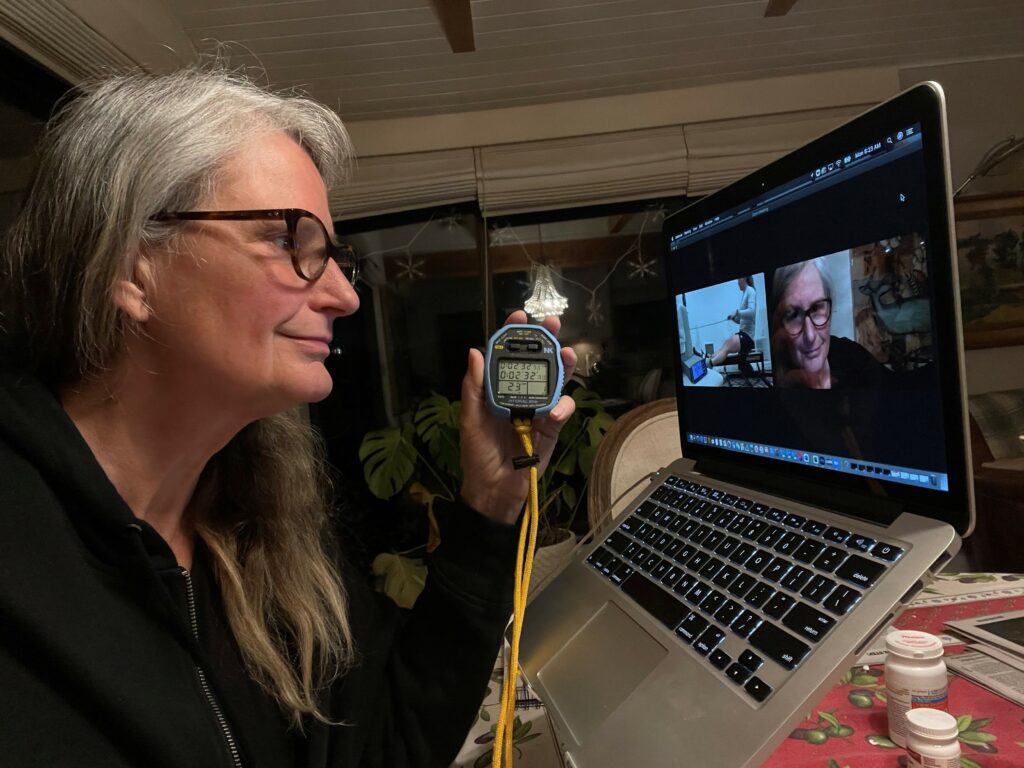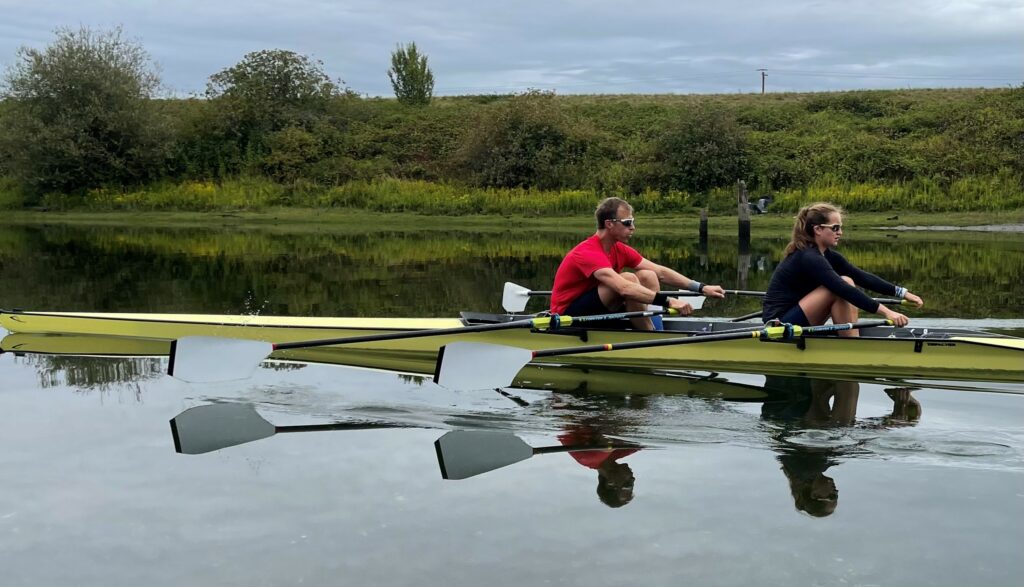
07 Feb 2022
Outlaw and Vogt eying Paris 2024 in para-rowing’s newest Games event
Rowing’s slate of Paralympic races is set to grow as the PR3 mixed double sculls (PR3 Mix2x) joins the four events that have been raced since the sport’s first Paralympic Games appearance at Beijing 2008.
Formally announced in late 2021, the count-down to Paris 2024 is on and top rowers form around the world in the PR3 classification are gearing up for an intense two and a half years to get there.
Elite American sculler Pearl Outlaw first raced the PR3 Mix2x at 2018 World Rowing Championships and capturing Bronze a year later in 2019. “Although the PR3 2x was not a Paralympic event until recently, the boat and the event have always held a special place in my heart,” Outlaw tells World Rowing from Boston, Massachusetts on the United States’ North-East Atlantic coast, site of USRowing’s Paralympic Training Centre.
“My goal was always to continue competing in the 2x to one day achieve a first place World Championship finish,” says the athlete, whose visual impairment qualifies her for PR3 classification. “The event being added to the 2024 Games just presents another opportunity for elite racing. I’m excited for the prospect of increased competition leading up to 2024, as well as more of my peers and competitors in the 2x having access to Paralympic level racing.” It is a sentiment echoed by her training partner.
“I’m very excited about the addition of the mixed PR3 2x to the Paralympic programme,” says her doubles partner, Todd Vogt, who lives and trains on the other side of the continent in Portland, Oregon on the Pacific north-west coast of America. Despite rowing for 20 years and coaching for over a decade, the Paralympic Games was not on his radar until a 2018 diagnosis of young-onset Parkinson’s disease, a nervous system disorder that has, bit by bit reduced Vogt’s control of his own body. “The symptoms impair my balance, coordination and strength,” he explains, but they also “qualify me for rowing as a Paralympic athlete.”

“When Todd was diagnosed with PD, and learned of the possibility of training toward the National Paralympic Rowing Team, [he] asked me to coach him toward his dream of becoming a Paralympian,” says the double’s coach Susan Wood. “Not only is he an amazing athlete, but Todd also works harder than anyone I have met.” This is high praise from a coach whose experience spans four decades and includes coaching the US Women’s Single Sculler, Jennifer Devine at the Athens 2004 Olympics. “He is an inspiration for us all as he trains and competes on this level at the age of 47,” adds Wood.
In March, Outlaw will meet up with Vogt and their coach, Susan Wood, in Florida for a training camp and “Speed Orders” national team selection event before she joins Vogt and Wood in Portland. Until then, she says, “I am training […] with Susan coaching my over zoom on the rowing machine while also training for the Para Biathlon.”
“I work with Pearl over zoom call in the early morning for me (I am three hours earlier than her in Boston),” says Wood. “She sets up her laptop so I can see her on the rowing machine, and she props her phone such that I can see her splits. I sit at my kitchen table at 5am, with my stroke watch in hand, and coach her in technique and through the tougher workouts, developing a common vocabulary for Todd and Pearl.”
“I first met Pearl last summer, when she and Todd trained and competed in the Para3 Mix2x,” says Wood, who comes to her latest coaching assignment with an impressive 40 year resume including coach of the US Women’s Single Sculler, Jennifer Devine, at the Athens 2004 Olympics. “We arranged a two-week period for Pearl to come to Portland and learn whether it would be a good match for her to train with Todd on the west coast. Things went very well, and she felt confident moving to Portland was the right decision for the next chapter of training.”
“Having this opportunity for the mix 2x allows more flexibility to devote longer time to develop the skill base required for Todd and Pearl to work together in the double,” says Wood, who is optimistic about the time ahead of them to “perfect our unity toward the World Rowing Championships in September, 2022.”
Outlaw, Vogt and Wood’s story, while unique in the specifics, is one whose broad strokes can be seen in many different nations the world over as athletes and coaches prepare for the 2022 racing season where the PR3 Mix2x is now officially a Paralympic event. But what is it exactly sets the PR3 Mix 2x apart from the more familiar PR3 mixed fours with coxswain (PR3 Mix4+)?

At the most basic level, explains Ellen Minzner, USRowing’s Director of Para Rowing, “the four is a sweep [one oar per rower] event with a coxswain, and the double is a sculling event [two oars per rower] with no coxswain. The athletes in both crews are mixed – men and women – and while they both classify as PR3, athletes in the 2x must meet a higher threshold of disability impairment.” Having a Paralympic opportunity, “is validating for these athletes and I think it will inspire more to come out for the sport.”
“The training tactics of the Para3 Mix 4+ differ from the Para3 Mix 2x,” points out Wood. “The smaller boat does not have a coxswain steering nor calling the race. In the double, Todd must be in bow since Pearl is blind, so he will call the race plan and any other bits of information to help Pearl visualize the competition and conditions.”
“It becomes a much more personalized experience for Pearl. It is more challenging for Todd, which is why this time together is invaluable.”

